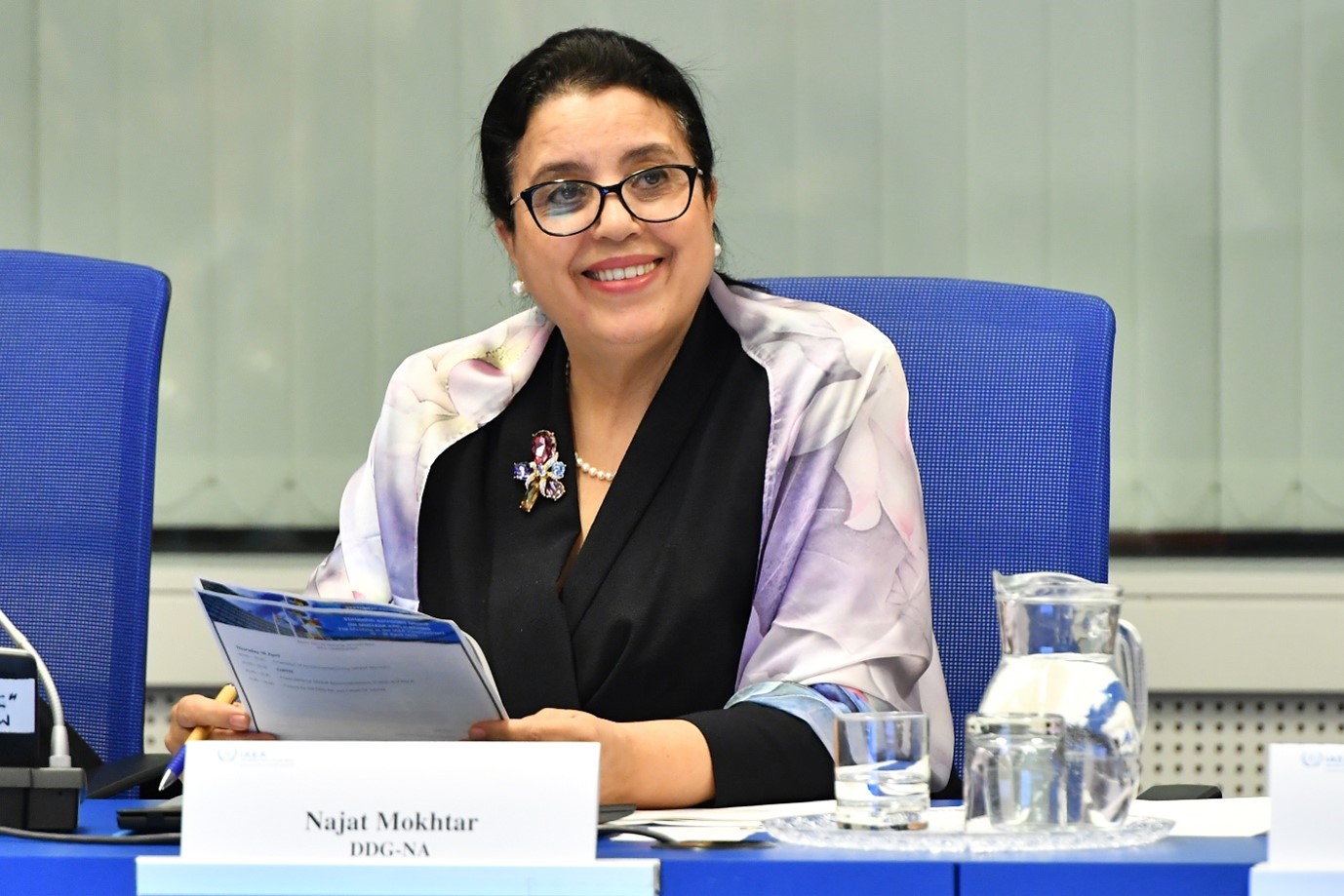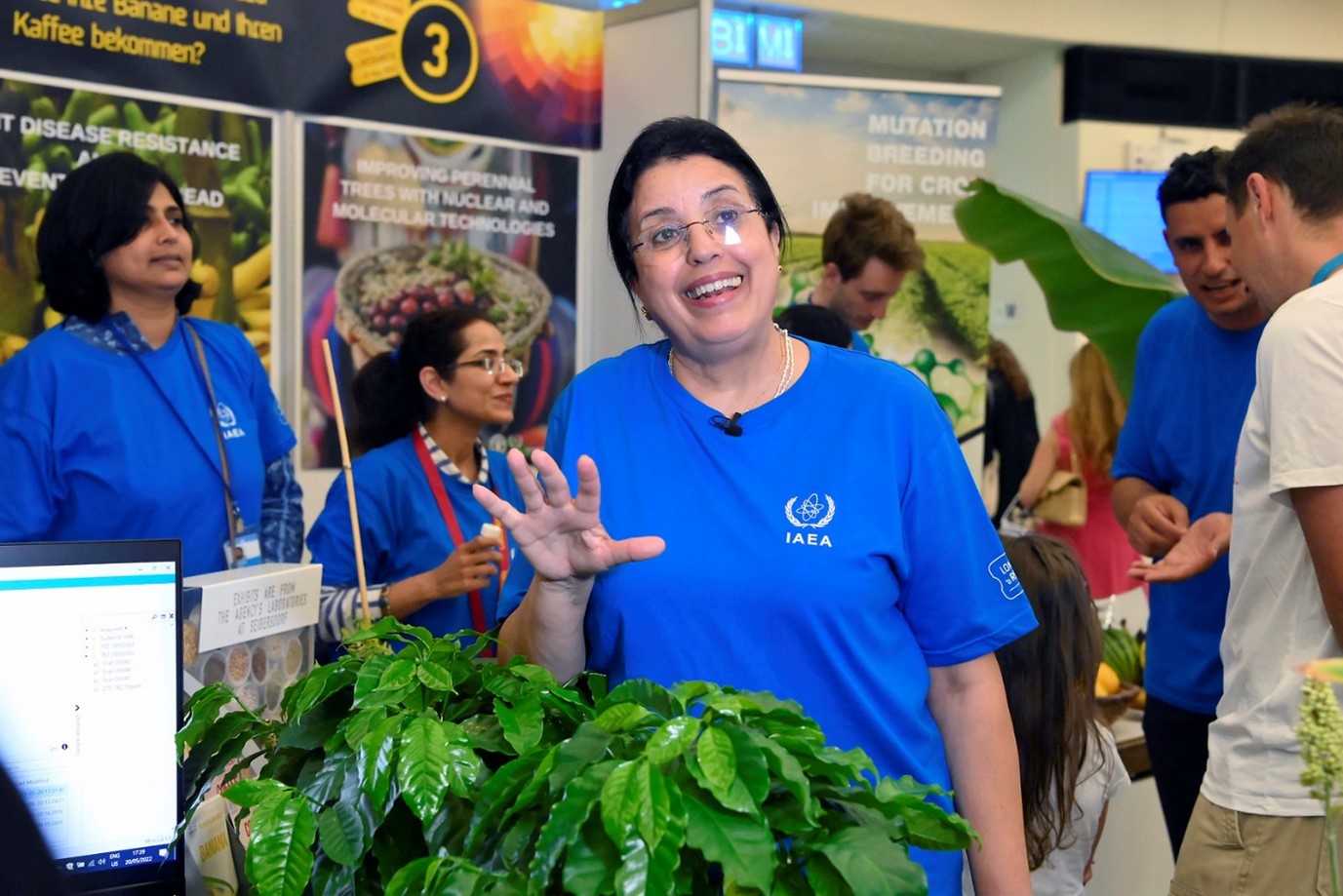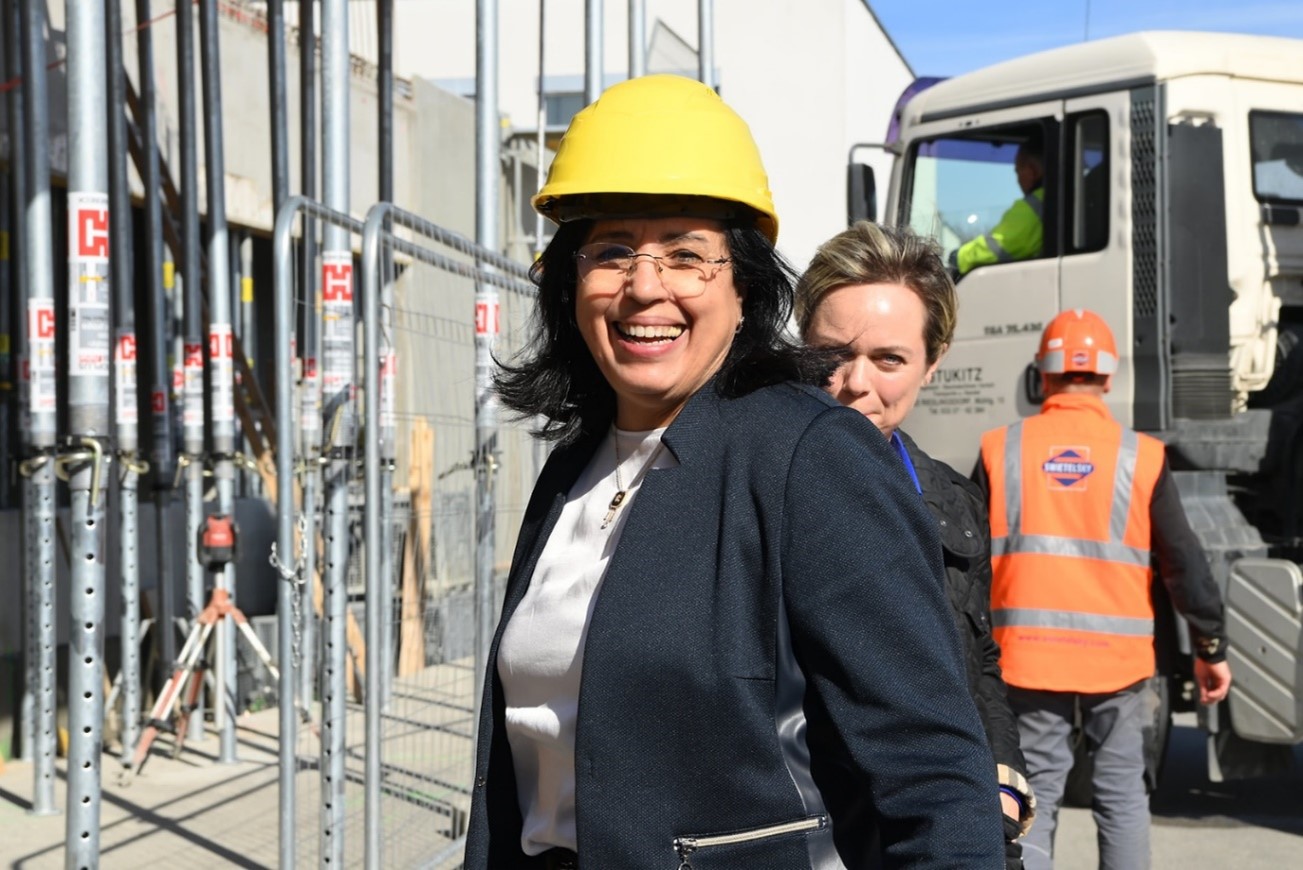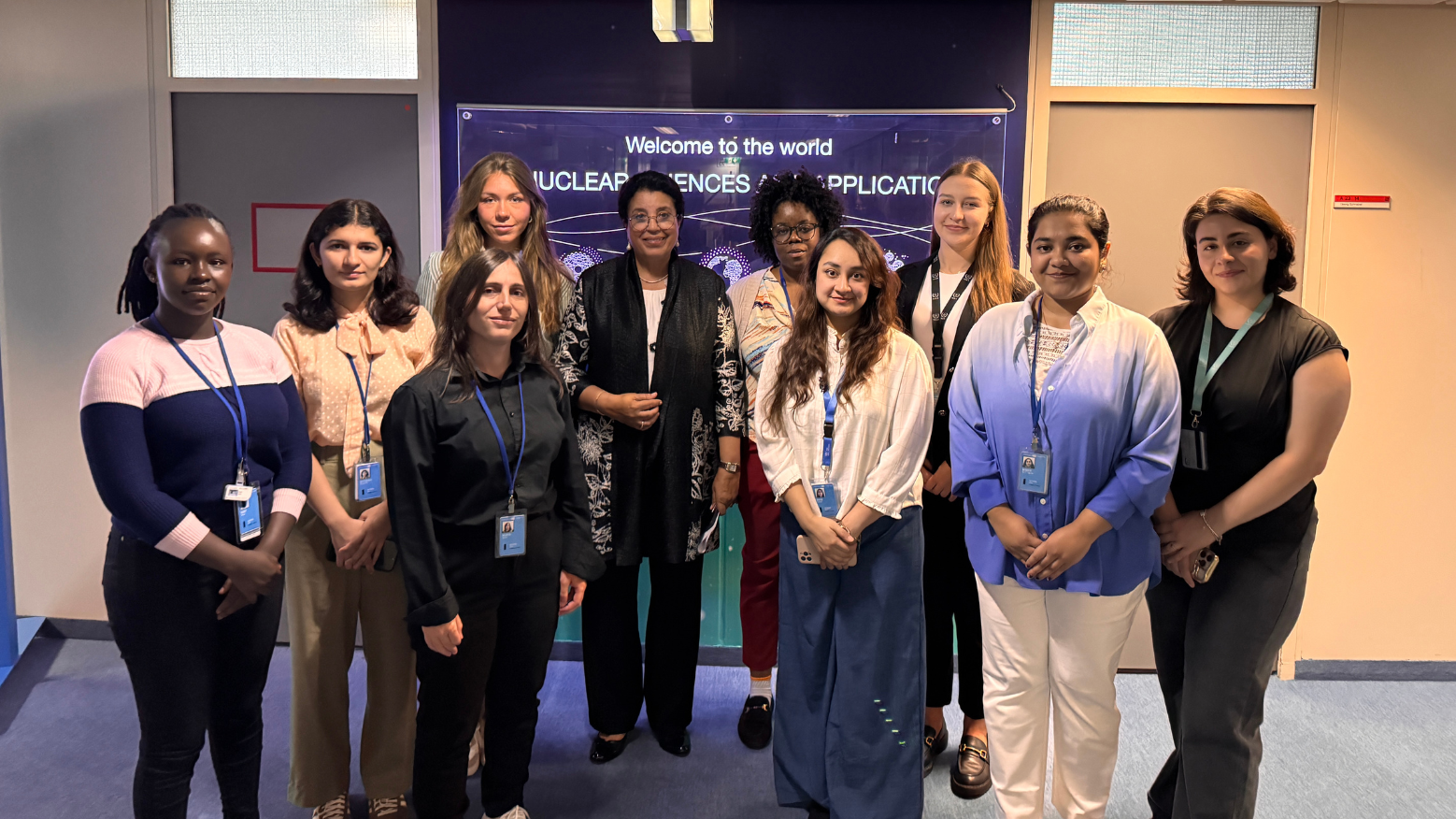The IAEA profiles employees to provide insight into the variety of career paths that support the Agency’s mission of Atoms for Peace and Development and to inspire and encourage readers, particularly women, to pursue careers in STEM (science, technology, engineering and mathematics) or STEM-adjacent fields. Read more profiles of women at the IAEA.
From a biochemistry student in Morocco to IAEA Deputy Director General and Head of the Department of Nuclear Sciences and Applications, Najat Mokhtar’s career has been driven by curiosity, resilience and a commitment to improving people’s lives through science. Her journey — spanning nutrition, nuclear sciences and international policymaking — reflects a belief in the transformative power of education and collaboration.




